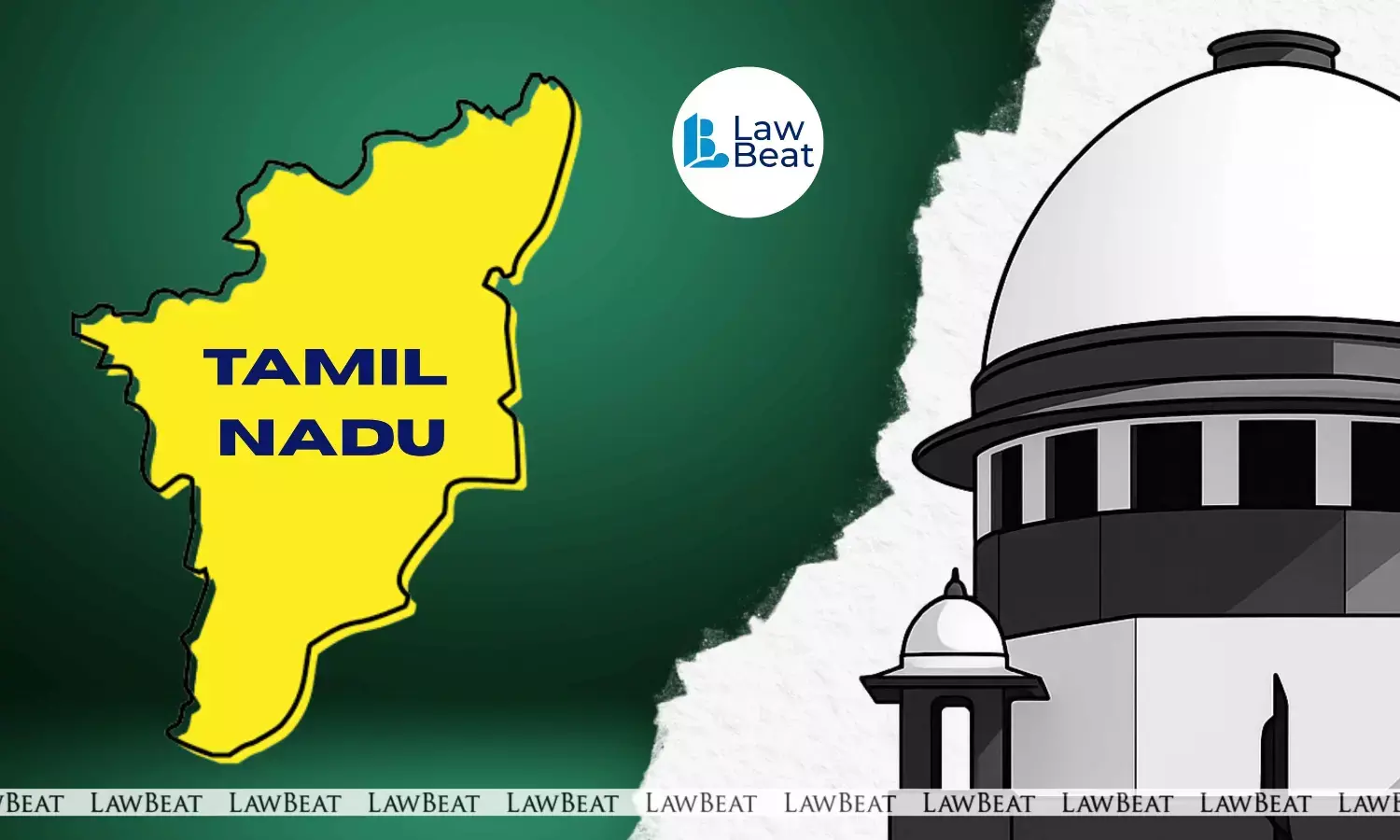Can States Name Welfare Schemes After Political Leaders? Tamil Nadu Moves SC Against Madras HC Ban

Madurai bench of the High Court had also instructed the government not to grant permission in future to erect poles.
The Tamil Nadu government has moved Supreme Court of India against a Madras High Court order barring it from using the name or photograph of any political leader, in advertisements for welfare schemes.
Today, the plea was urgently mentioned before a Chief Justice of India BR Gavai led bench led by Senior Advocate Mukul Rohatgi, which agreed to hear the matter on Wednesday.
In an interim order, the Madras High Court recently barred the Tamil Nadu government from using the name or photograph of any living political leader, including former Chief Ministers, as well as party symbols or ideological figures, in advertisements for welfare schemes. The direction is effectively aimed at the ruling DMK government, headed by Chief Minister M. K. Stalin.
The order came in a petition filed by AIADMK MP C. Ve. Shanmugam, who alleged that the DMK-led state government was misusing public funds to promote party icons and leaders through state-sponsored schemes. The petitioner alleged that photographs of the Chief Minister, as well as of former party leaders and ideological figures, were being used in promotional materials for government outreach programmes. The schemes, he claimed, also included the ruling party’s emblem and logo, thereby violating judicial directions and guidelines governing government advertisements.
Appearing for the petitioner, Senior Advocate Vijay Narayan argued that such branding of public schemes amounts to indirect political campaigning using state funds and goes against the spirit of neutrality expected in a democratic system. He cited a series of Supreme Court judgments including Common Cause vs Union of India and CPIL vs Kewal Kumar Sharma, which laid down norms for regulating government advertisement content. He also relied on the 2014 Government Advertisement (Content Regulation) Guidelines.
The state, represented by Advocate General P S Raman, contested the allegations and submitted that the materials relied upon by the petitioner were not official government documents. He assured the court that the government had not published any outreach material containing political insignia or photographs of ideological figures and sought time to submit an affidavit with authenticated content.
The ruling party, DMK, through its counsel P Wilson, termed the plea politically motivated, pointing out that the petitioner was an opposition MP attempting to malign the image of the ruling dispensation. The Election Commission of India, also arrayed as a respondent, told the court that all parties in power are expected to follow constitutional and judicial mandates while issuing publicity material, including guidelines issued by the Commission in 2016.
Taking note of the arguments and the documents presented, the bench comprising Chief Justice Manindra Mohan Shrivastava and Justice Sunder Mohan held that, prima facie, the use of names of living political personalities in the nomenclature of welfare schemes, as well as photographs of ideological figures and former Chief Ministers, may not stand legal scrutiny in light of existing Supreme Court directions. While the court acknowledged that the publication of the incumbent Chief Minister’s photograph may be permissible in certain circumstances, as clarified by the apex court in State of Karnataka v. Common Cause, it observed that extending such allowance to party emblems, logos, or the names of living politicians appeared unjustified.
Passing its interim order, court restrained the state from using the name of any living political figure or the photograph of any former Chief Minister or ideological leader in its government advertisements. It also barred the use of any party emblem, flag, or logo in such publications.
However, the bench clarified that the operation or launch of any welfare scheme would not be hindered by this order. Court said that the pendency of the writ petition would not prevent the Election Commission from acting independently on the complaint filed by the petitioner.
